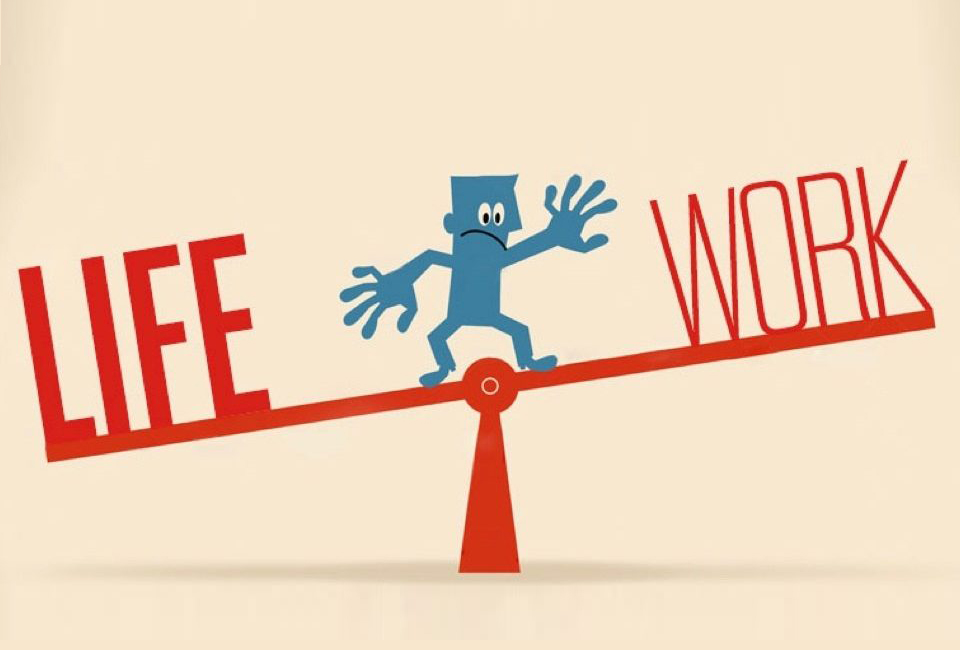Work to Live or Live to Work?

By Laura Ushay, Executive Director at Parbery Consulting
Do you work to live, or live to work? Ponder that for a moment, and really evaluate the time, activities and responsibilities inside and outside of work that you are committed to. (You may even find it useful to write it down using two columns ‘Work’ and ‘Home’.) How’s the balance between the two looking for you?
I find it extremely important to take time to reflect on that good ol’ work-life seesaw. Why is it so important? How do you keep it in balance?
There are plenty of studies out there which indicate that organisations with work-family incentives and/or policies promote a higher positive culture, higher organisational performance and improved productivity. Yet the struggle is real!
It’s wonderful when you work for an organisation, such as Parbery Consulting, that provides the opportunity for and encourages work-life balance. Here, our focus is on empowering our employees to deliver results using measurable indicators, and not focusing on the how, when or where tasks are done.
Personally, I am a firm believer and supporter of the healthy, balanced, lifestyle. It is key to reducing stress, maintaining a positive mental, physical and emotional well-being, and the key to ‘resetting the switch’ to encourage preparedness for each day. Why is this so important? The health implications of bad sleep habits and heightened stress levels are proven, and known to reduce life expectancies. So why do we continue to foster this ‘lifestyle’? What are we trying to achieve? Making the time to ‘reset the switch’ is fundamental to the work-life balance, so I encourage you all to find that passion/hobby/sport that provides this for you.
Sure, we all have times where it gets out of whack, and a lot of people struggle to get through these times. Just remember, break everything down into smaller pieces/tasks/goals, focus on the smallest positive goal and put your energy into making that one small positive thing happen.
Some quick tips to getting that work-life balance in order:
- Start small. Take the time to get outside and do things on your own, or with loved ones, at least once a week, and gradually increase.
- Find a hobby/sport/passion. ‘Reset your switch’ by finding an activity that requires you to fully focus on it and not allow work flusters to creep in.
- Use a dream/vision board. This helps capture and visualise dreams/goals. Remember: dreams written down become goals, goals with a plan become reality, and a reality becomes an achievement!
- Use ‘To Do’ lists. At the beginning of a work day, assess and prioritise what work you plan to do that day. Review your ‘To Do’ list at the end of your day to assess what has been completed and note down what is on the cards for tomorrow.
- Communicate. Ensure you have that discussion with your supervisor and loved ones around facilitating your balance. Revisit regularly.
- Advocate. If your organisation does not have a policy to support work-life balance, be the advocate to start the discussion with your relevant HR area. Support your colleagues and lead the change band-wagon.
- Reflect. Create a memory jar that you add to regularly (with your loved ones) – capturing the date and what positive moments you have experienced. Review it once a year, to celebrate the achievements.
- Chunk it out. Finding it tough? Everything can be broken down into smaller and smaller pieces… chunk it down to the smallest piece and complete one piece at a time.
- Question. Ask yourself whether any tasks that haven’t been completed really need to get done at the expense of stress and time with your family/hobby/sport/passion? Can that task wait until tomorrow?
- Commit. If you have a hobby/sport/passion, set days/times for these activities and stick to them. Start small and gradually increase.
- Switch Off. If you are home, and work creeps in, note it down or e-mail it to your work, and review it as part of your ‘To Do’ list for tomorrow.
- Overloaded? Go for a breather – take a walk. Can responding to an e-mail wait until tomorrow when you can think with more clarity? Chunk it out, and if it’s really tough, ensure you seek some help.


